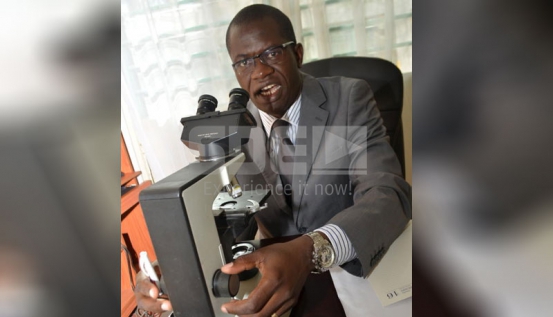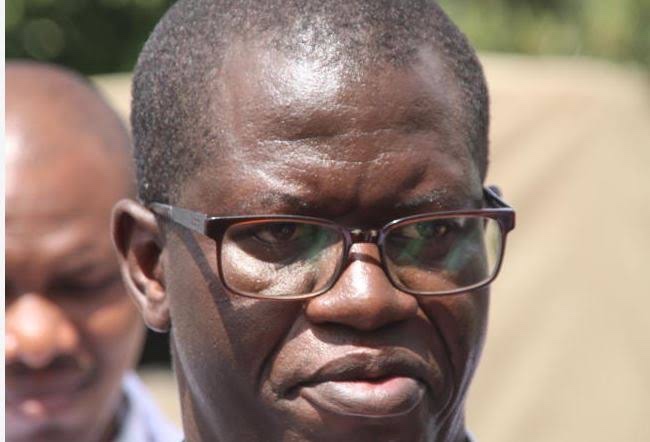Dealing with dead bodies is not a job for the faint-hearted, do you experience nightmares?
I actually don’t experience any nightmares. Dealing with the dead to me is like any other job. I think it’s because of my background as a medical doctor. My first experience with dead bodies was in the anatomy class years back when I was a first-year medical student.
I had never been close to a dead person before. I remember my anatomy professor (the late Prof Kimani) telling us to divide ourselves into groups of seven. Each group was assigned a body that we were to dissect for the next two years.
It was really traumatic. I had nightmares. I almost changed the course. But I told myself, ‘Well this is what it takes to be a doctor.’
How do you reconcile tradition and profession? In some cultures, a young person is not supposed to view the body of an old woman…
Well, having been a doctor and having examined patients in various hospitals that I worked for before becoming a pathologist, it has never been a problem.
It was only difficult at times when I was a medical officer in Nyamira Hospital. Examining old women was very tasking and we had to do a lot of explaining before some of them agreed to be examined.
What is the best and worst part of being a government pathologist?
The job can be a bit challenging. More so if the dead is a high-profile personality and in events of mass fatality disasters. There are usually a lot of expectations. There are also many conspiracy theories with lots of suspicions, especially due to the fact that you work for the government.
The best part is when you perform an autopsy and you are able to help solve a crime. There are also other events like mass casualty disasters, an example being the terrorist attack at the Garissa University College. The bodies came when they were decomposed due to the poor storage facilities in Garissa.
Had we not coordinated the identification process well, there would have been many missing students up to now. It however left us feeling satisfied when every parent was able to bury their child.
Is it true that we have few pathologists, and how does one become a government pathologist?
We are not many as pathologists. Pathology is also a broad specialty with some pathologists opting to be hematologists, microbiologists, clinical chemists, molecular biologists and histopathologists, leaving a few of us to deal with autopsies on a day to day basis.
To become a government pathologist, you need to have a basic medical degree, master’s degree in pathology and training on forensic pathology.
The pathology report on the murder of Foreign Affairs Minister Dr Robert Ouko in 1990 aroused a lot of skepticism. Can Kenyans trust your findings, especially when handling high-profile cases?
When I heard of the report, I was also as shocked as other Kenyans. I was in high school then. However, I must admit that most of what I heard was from the media and I have never been able to access the report to be able to make a fair comment.
The case of course made a big dent in the practice of pathology, such that when one hears that you are a government pathologist, some people think the government sent you to tamper with investigations.
We have however come up with a system where wherever there is a high-profile death, my team and I first hold a conference with the relatives and other involved parties so that I can give them time to look for a pathologist of their choice (a sort of a quality control system).
We also don’t work in isolation and by the time we release the report, we would have discussed the case and explored all scientific possibilities that may have led to the death.
How does your day look like?
My daily work is usually very hectic. I wake up at 5am, do some reading up to 6am, prepare and reach the office by 7.30am. I have meetings with my staff, respond to mails, and head for autopsies during the days that I am on autopsy duty.
Other days, I head to courts to testify as an expert witness. There is also a lot of travel within the country to either attend to court, exhumations, autopsies, technical support to pathologists in the counties and meetings. When I get home in the evenings, I either read or do my reports up to about midnight.
Weekends are spent with my family when I am not busy.

There are frequent cases of sudden death and homicide across the country. Do you attend to all of them or you delegate?
We have pathologists and medical officers in the counties who deal with most of those cases. I am only called to support when the case is of interest and the doctors feel uncomfortable dealing with them. The bulk of my work is however in Nairobi.
Is it mandatory for a witness to be present during postmortem?
It is not mandatory for one to witness an autopsy. The process is too traumatic to relatives. I would not want to witness an autopsy of my close relative despite being a pathologist. The autopsy process is also too technical for a layman to understand what is going on despite being present in the autopsy room.
I have seen people fainting in autopsy rooms (including police officers). Some people insist on being there because they don’t know what to expect in the autopsy room. But once I explain to them, they understand. The best way to go through the process is to hire a doctor to witness the process on your behalf.
There are instances when the government hires foreign experts. Does this mean there is lack of confidence in our own pathologists?
I see no need for one to bring in any specialist from out of the country. Having worked with specialists from many parts of the world, I believe that we have what it takes to perform a world-class autopsy. The lack of confidence comes from the previous cases that led to the controversial outcomes that you earlier talked about.
For your information, I was recently elected President of the African Society of Forensic Medicine. That shows the confidence that the specialists in other African countries have in the practice of forensic medicine in Kenya.
What has pathology taught you about the health of Kenyans?
Kenyans have to take their health very seriously. In the past, the focus was on infectious diseases. However, it has been noted that non-communicable diseases are on the rise. These include cardiovascular diseases (like hypertension); diabetes, cancers and so on.
I have seen so many cases of sudden death as a result of complications of hypertension (no week passes before I perform an autopsy due to this). Hypertension is known as a silent killer and in many occasions, you only come to know that you have it when you go for a medical checkup. It does not necessarily lead to death if well managed.
Young boys and girls are also increasingly overindulging in excessive consumption of alcohol, cigarettes (including shisha), drugs and risky sexual behaviours associated with the same.
Which is your most unforgettable case so far?
It was that of a nine-year-old girl who died after being sexually and physically abused by an uncle for years until she passed on. The uncle sneaked the body into the mortuary as a case of natural death.
The morticians noted the injuries and brought it to my attention. We did the autopsy and collected evidence. The girl was malnourished, was anaemic and had many injuries, old and recent. As a result of our work, we were able get the uncle arrested.
Your job must be stressful. Do you go for counselling?
(Laughs) Is it so stressful? I believe that there has to some level of stress in each and every profession and in order for one to overcome the stress, one has to get regular counselling.
Do you believe there is life after death?
Of course there is life after death.
Do you eat meat?
I am a very social man with many friends. I occasionally enjoy nyama choma with friends.
There's no story that cannot be told. We cover the stories that others don't want to be told, we bring you all the news you need. If you have tips, exposes or any story you need to be told bluntly and all queries write to us [email protected] also find us on Telegram

